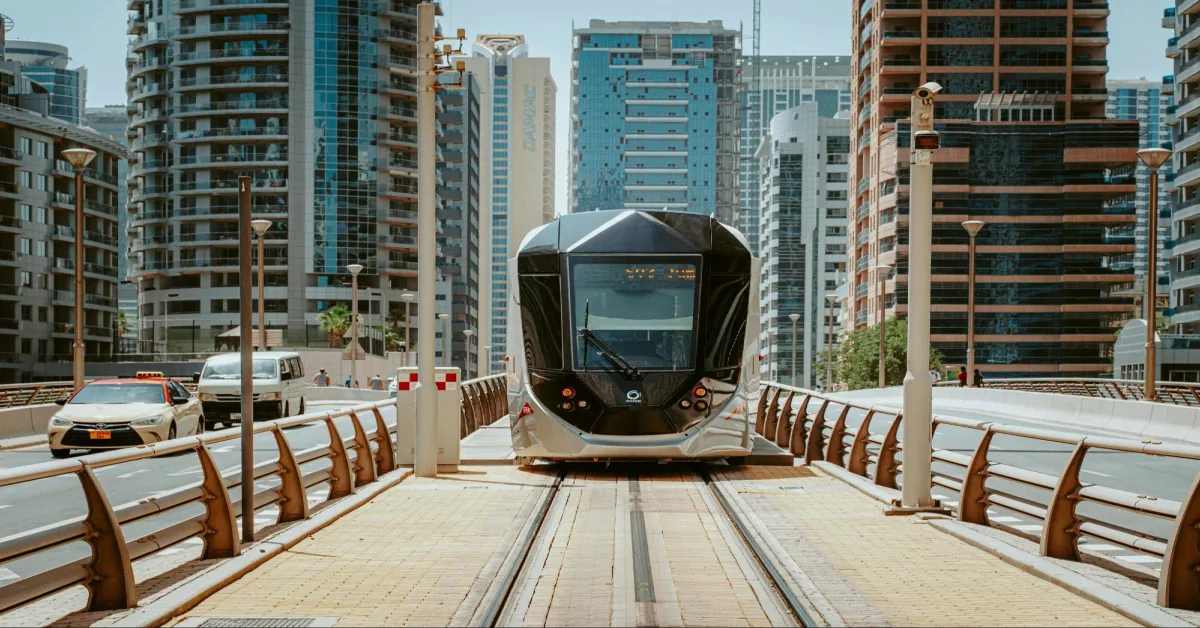Istanbul vs Dubai—two of the most exotic locations in the world—are now more accessible to tourists, residents, and investors than ever. Istanbul is a city in Turkey, a country in West Asia bordering Europe, while Dubai is an emirate in the UAE, located on the southeastern tip of the Arabian Peninsula.
In this article, we’ll compare Istanbul and Dubai in terms of various factors, such as living, visiting, and investing. By walking you through the details of both cities, we help you get a clear picture of what each has to offer.
- What can you explore in Istanbul vs Dubai?
- Living in Istanbul vs Dubai
- Lifestyle and culture
- Climate and weather
- Expat experience
- Rental yields and returns
- Legal and tax considerations
- Investments in Istanbul vs Dubai
- Key takeaways
- FAQs

What can you explore in Istanbul vs Dubai?
There’s plenty to see in both cities. Istanbul boasts historic sites like Hagia Sophia and Topkapi Palace. In Dubai, it’s hard to leave without visiting the Dubai Museum, the Dubai Aquarium, and the iconic Burj Khalifa.
Travellers to Dubai will find architectural marvels like the Dubai Frame and endless shopping at the Dubai Mall. Istanbul offers the Grand Bazaar, a historic market with everything from handmade soaps to luxurious carpets. The Blue Mosque, with its stunning domes and minarets, is also a must-visit in Istanbul.
Beyond tourist attractions, it’s important to consider what living in each city looks like.
Living in Istanbul vs Dubai
The cost of living varies between these two cities, driven mainly by economic factors and day-to-day expenses.
Istanbul is known for its rich history, delicious cuisine, and lively social scene. It’s a bustling metropolis with a European and Asian side. The Asian side is more affordable if you’re looking to cut costs.
Dubai offers modern infrastructure, strong safety, and high-quality living. It offers a wide range of housing, from studio apartments to luxury villas, and is packed with career opportunities.
Istanbul is around 42% cheaper than Dubai for most everyday expenses. Rent, utilities, and services tend to be more expensive in Dubai.
Let’s break down costs like food, transport, and accommodation in both cities.
Costs of food and water
In Istanbul, prices vary based on where and how you dine. A budget meal may cost 50 TL, while a more indulgent meal at a restaurant could reach 300 TL. A bottle of water is about 5 TL. A family meal might cost 1,500 TL in a modest area or up to 4,000 TL in a high-end one.
The average daily food cost for vegetarian meals in Dubai ranges from 60 to 80 AED. Fast food can range from 35 to 60 AED. Dining out can cost anywhere from 150 AED to 2,000 AED, depending on where you dine. Water costs 3.5 AED. To save, avoid tourist hotspots and check reviews before dining.
Transportation costs

Getting around Istanbul is budget-friendly. A typical fare on the tram or bus is 27 TL. The Istanbul Metro and Tram systems are quick and efficient, and ferries like the popular Bosphorus Cruise offer a scenic way to travel.
In Dubai, buses start at 3 AED per ride. Dubai Metro fares vary between 1.5 and 17 AED, depending on the zone. There’s also the tram, various taxis, and water transportation. Dubai caters to luxury seekers, from upscale shopping to desert safaris.
Accommodation prices
Istanbul, Turkey’s economic and cultural hub, offers 1BHK apartments ranging from $800 to $2,500. The Asian side tends to be more affordable. Monthly utility costs average between $60 and $100.
In Dubai, a studio can cost between 55,000 and 85,000 AED per year. Utilities in Dubai usually run between 840 AED and 1,200 AED monthly.
Lifestyle and culture
Lifestyle reflects behaviours and habits, while shared values and traditions shape culture. Let’s see how they differ in these two cities.
Dubai leans conservative despite its modern, high-end vibe. Istanbul blends East and West in a dynamic mix of cultures. Its lively social scene and food culture are major draws.
Dubai is cosmopolitan and safe, with a large expat community and luxury amenities. Istanbul offers traditional charm, rich history, and neighbourhoods full of character. Yet, its city centre feels quite international.
Climate and weather

Istanbul enjoys a moderate climate, while Dubai has a desert climate with intense summer heat and humidity.
Istanbul has four seasons: spring, summer, autumn, and winter. Dubai has two: hot summers and mild winters. Rain is rare in Dubai but more common in Istanbul, especially in the colder months.
Visit Dubai from October to March to avoid the heat. Spring and autumn are best for Istanbul. Be mindful: Dubai’s summer heat can cause dehydration and sunburn, while Istanbul may surprise you with sudden rainfall and chilly breezes.
Here’s a quick comparison of Dubai’s weather with Istanbul’s:
| Month | Temperature (Dubai) | Temperature (Istanbul) | Rainfall (Dubai) | Rainfall (Istanbul) |
| Jan | 24°C | 8.6°C | High | Significant |
| Feb | 25°C | 10°C | Wettest | N/A |
| Mar | 28°C | 12°C | Low | N/A |
| Apr | 32°C | 17°C | Very low | N/A |
| May | 36°C | 20°C | None | N/A |
| Jun | 36°C | 24°C | None | Occasional Thunderstorms |
| Jul | 43°C | 24°C | None | N/A |
| Aug | 43°C | N/A | None | N/A |
| Sep | N/A | N/A | Minimal | N/A |
| Oct | N/A | N/A | None | N/A |
| Nov | 30°C | N/A | Some | Wettest |
| Dec | 25°C | N/A | Some | Significant |
Expat experience
Both cities have thriving expat communities. But what’s the day-to-day like for newcomers?
Dubai’s expat community is large, welcoming, and inclusive. Istanbul locals are warm and friendly, and the city is social and energetic.
Dubai offers tax-free salaries, luxury, and a great quality of life. Istanbul is fast-paced, colourful, and more traditional—but just as engaging.
Dubai makes relocating easier, with visa options like Green Visas, Golden Visas, work visas, and investor visas. Istanbul offers short-term visas, work permits, and residency options for property buyers, but the process can be more involved.
Rental yields and returns

Dubai generally offers higher rental yields, thanks to the strong demand from expats and its luxury market. Istanbul’s market is more stable in the long term, though specific rent controls cap it.
Legal and tax considerations
Dubai is transparent in legal and tax matters. Foreigners can buy property in freehold zones and are eligible for a 10-year Golden Visa if they invest 2 million AED or more.
In contrast, Istanbul’s process involves additional steps, such as military clearance and title checks. But if you invest $400,000 or more, you may be eligible for Turkish citizenship.
Investments in Istanbul vs Dubai
In Turkey, there are no significant restrictions on foreign portfolio investors. Make sure to work with investment firms licensed by the Capital Markets Board of Turkey.
Dubai is a magnet for investment. It offers strong security, investor-friendly policies, and 26 free business zones. While the cost of entry is higher in Dubai, Istanbul presents challenges like currency fluctuation.
Investment pros and cons
Here is a quick comparison of pros and cons:
| Aspect | Dubai | Istanbul |
| Rental Yield | High, luxury market, tax-free | Stable, local demand, capped returns |
| Market Risk | Price fluctuations, global factors | Currency volatility, local controls |
| Ease of Purchase | Straightforward for foreigners | Additional bureaucracy |
| Visa Opportunity | Golden Visa (10 years) | Citizenship ($400K+ investment) |
| Minimum Investment | AED 2 million | $400,000 |
Key takeaways
Istanbul is more affordable than Dubai for daily expenses, including food, rent, and transport. This makes it ideal for budget-conscious expats and travellers. Dubai offers a modern, tax-free lifestyle with strong infrastructure and high rental yields, making it attractive for professionals and investors.
Istanbul has a rich cultural mix and a four-season climate, while Dubai is more cosmopolitan, offering year-round sunshine but extreme summer heat.
Dubai’s property market is easier for foreigners to navigate, while Istanbul has more legal steps but offers citizenship through investment. Both cities are expat-friendly and provide unique experiences. Your choice depends on lifestyle, budget, and long-term goals.
FAQs
Yes, Istanbul is generally more affordable.
Dubai is usually more convenient for short stays.
Buying in Dubai is easier and tax-free. Istanbul has more red tape.